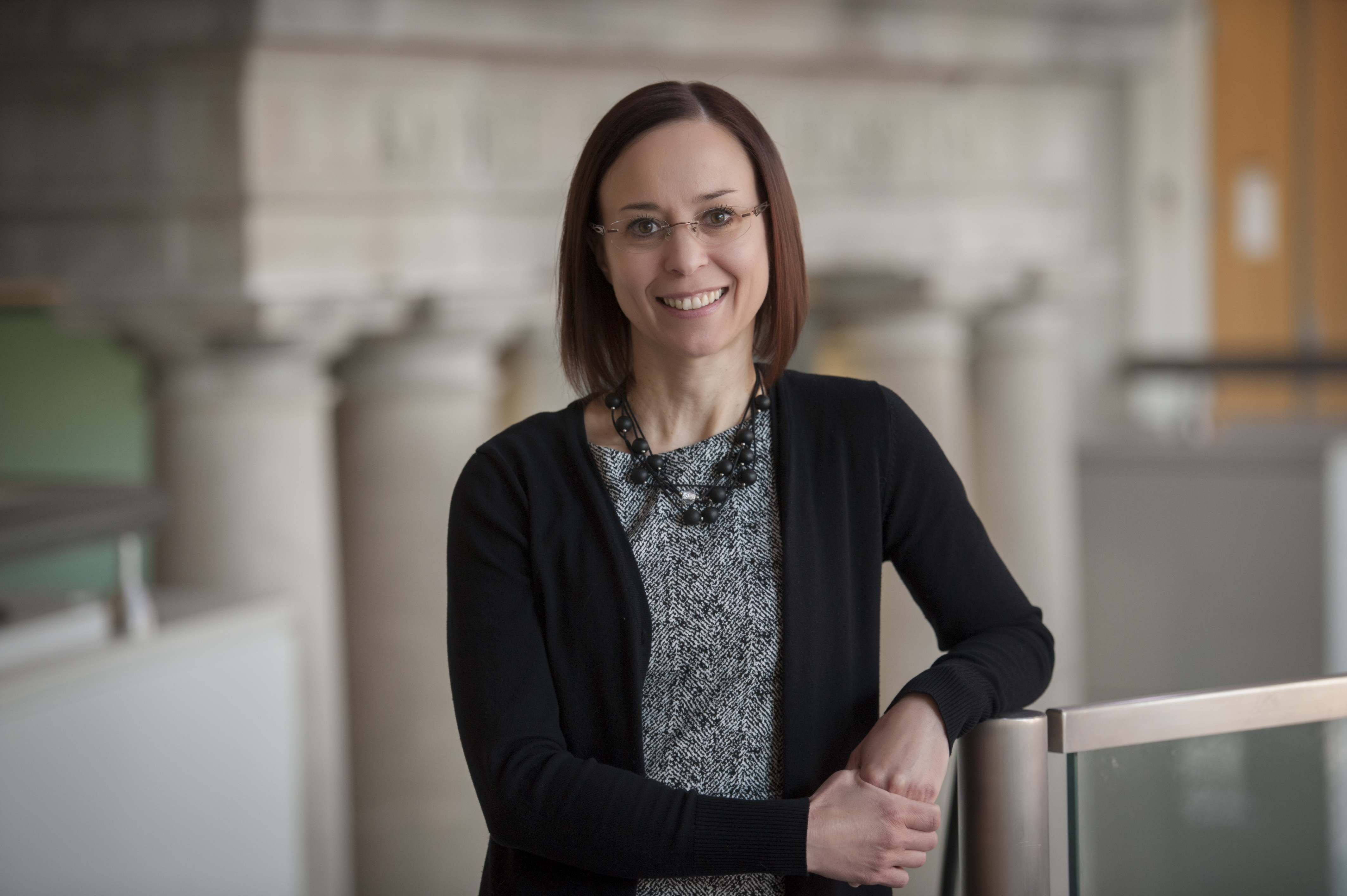Often, if a child has a developmental delay or an adult is suffering from a disease that can’t be immediately explained, doctors turn to genetic testing for answers. Each year, many new disease-causing genes are identified, says clinical molecular geneticist Jane Juusola, Ph.D., FACMG, F’12.
Today, genetic testing labs like GeneDx, Inc., where Juusola works, also conduct exome sequencing to analyze the protein-coding regions of the genome to identify variations in the genetic code. Once the testing is completed, the results are sent back to the client, typically a genetic counselor, geneticist or neurologist.
On a recent spring morning, Juusola, who is director of the clinical genomics program at GeneDx, came to Richmond to speak with students in the School of Medicine’s Master of Science in Genetic Counseling program about exome sequencing and how it’s used to diagnose rare diseases and conditions. It’s the third year in a row she’s made the trip back to the MCV Campus, where she first arrived in 2007 to teach in the molecular diagnostics laboratory after two years as a post-doctoral fellow in forensic biology at the FBI research laboratory in Quantico. Once at VCU, she elected to stay on as a clinical molecular genetics fellow until 2012, when she left to work at GeneDx.
“I came from a research setting,” Juusola explains, but the difference in working in VCU’s clinical setting “was remarkable. You were dealing with real patients and a lot of urgency.” With two mentors, Andrea Ferreira-Gonzalez, Ph.D., a professor of pathology, and Professor Arti Pandya, M.D., a former VCU Clinical Geneticist, Juusola says she learned how to advocate for herself and her team, as well as how to think about patients and best serve them.
“Genetic counselors are just amazing people,” says Juusola, whose team includes 40 of them at GeneDx. “They’re really good with people and also very smart technically.”
No other Virginia university offers a master’s degree in genetic counseling, and VCU’s dual-degree program, including a Ph.D. in human genetics with the master’s degree, is the only one of its kind in the country.
In a master’s class on genetic counseling taught by program director Rachel Gannaway, M.S., L.C.G.C., Juusola spoke about the importance of labs and academic institutions sharing information with each other and on platforms available to geneticists worldwide.
“In genetics, we all benefit from sharing data in a responsible and compliant way,” Juusola says, that doesn’t compromise patient privacy. In the end, one lab’s finding may provide answers to a patient with an unidentified disease in another part of the world.
“It is incredibly complex, but it is often the best way to end a family’s diagnostic odyssey,” Gannaway adds. “She is at the cutting edge of this technology, and she is able to provide case examples that students may not be exposed to in their coursework typically. She also represents a role that is less traditional in genetic counseling – it’s an emerging role they may pursue.”
The field is growing, both Gannaway and Juusola say, with more laboratories gaining the capacity for exome sequencing. VCU does not yet conduct clinical exome sequencing, Gannaway says, but is expected to start in the next year to test patients for cancer risk. GeneDx, by comparison, performs exome sequencing for hundreds of patients and their families every week, testing prenatal to adult patients for neurological disorders, cardiac diseases, hereditary cancers and many other types of diagnoses. Some results are available in as little as one to two weeks for infants in NICUs.
“These are really sick babies that need answers quickly,” Juusola says. Exome sequencing is now becoming less expensive and more accessible, and Gannaway notes that VCU’s genetic counseling master’s program has grown from six students per class in 2006 to 10 per class this year, its 27th year offering the degree.
Juusola became interested in exome sequencing after joining GeneDx as a review analyst interpreting genetic variation. The field was only a few years old, but Juusola joined the new department and rose from assistant director to director, where she now oversees more than 70 people, including board-certified geneticists, genetic counselors and assistants.
Gannaway says VCU students are fortunate to have a visiting teacher like Juusola. “She is committed to education and to advancing the field of genetic counseling,” she says. “It is rare to see someone at her level continuing to be committed to the education of genetic counseling students. She contacts me every year to ask, ‘When can I teach this year?’”
